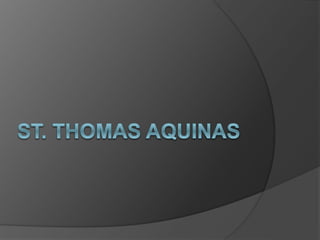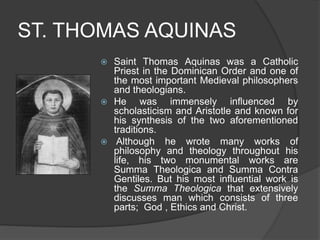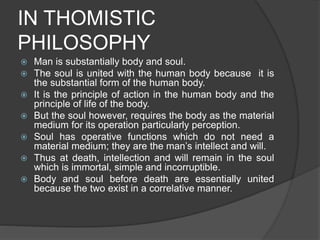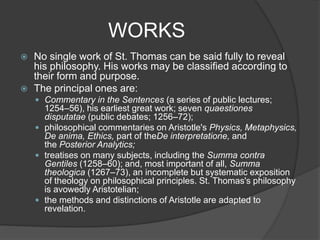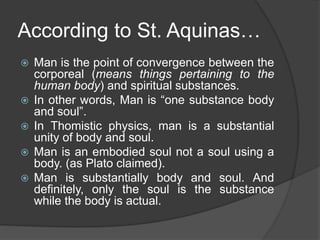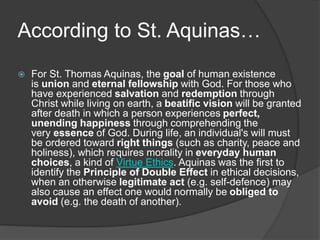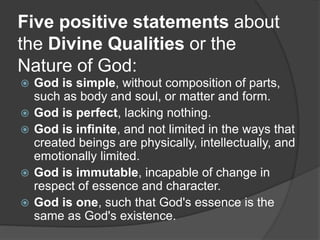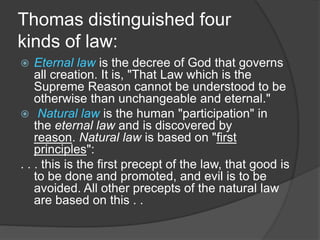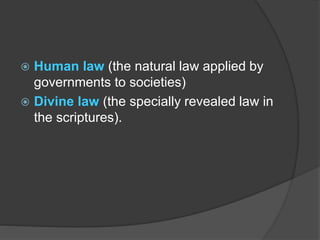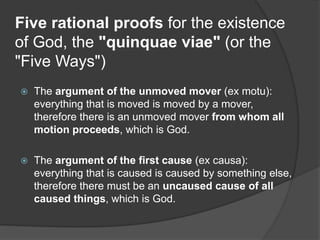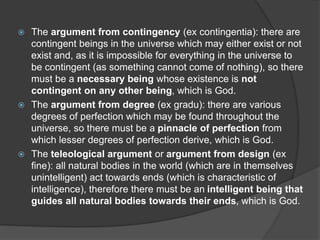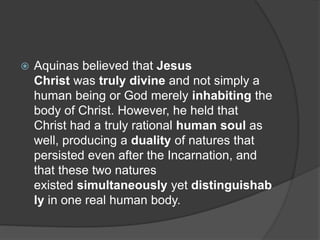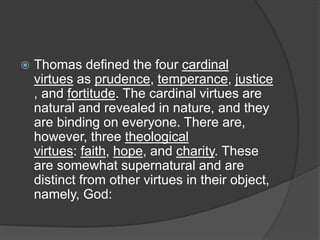Saint Thomas Aquinas was a 13th century Catholic priest and philosopher who synthesized Aristotle's philosophy with Catholic theology. His two most influential works were the Summa Theologica and Summa Contra Gentiles. In the Summa Theologica, he extensively discusses man, arguing that man is substantially both body and soul, with the soul being the principle of life and action in the body. Aquinas' philosophy is considered highly influential to this day.
